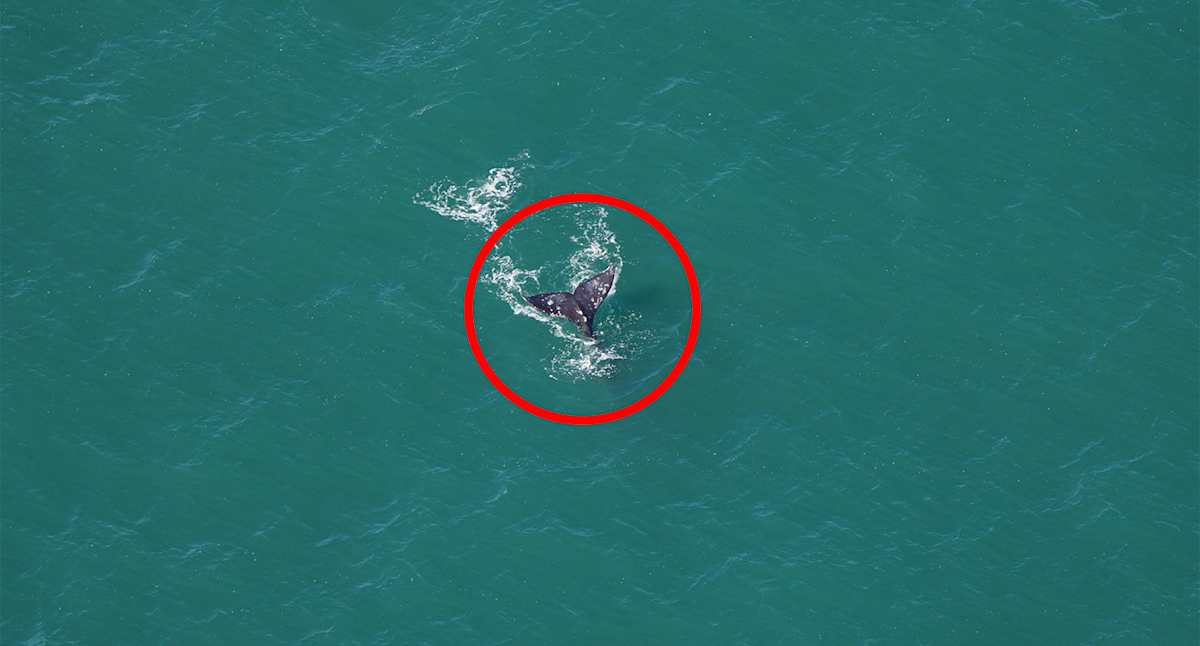Gray Whale Sighted off New England 200 Years after Species' Atlantic Extinction
Scientists have recently confirmed the presence of a gray whale off the coast of New England, a species that went extinct in the Atlantic Ocean two centuries ago. This exciting discovery not only highlights the resilience of marine life but also serves as a stark reminder of the impact of climate change on our oceans.
The researchers from the New England Aquarium in Boston spotted the gray whale while flying 30 miles south of Nantucket, Massachusetts, on 1 March 2024. Gray whales, which can weigh up to 60,000 pounds (27,215kg), are typically found in the northern Pacific Ocean. However, there have been five observations of these whales in Atlantic and Mediterranean waters over the past 15 years.
The researchers initially had doubts about their sighting, but after circling the area for 45 minutes, they were able to capture photographs that confirmed it was indeed a gray whale. Orla O'Brien, an associate research scientist with the Anderson Cabot Center for Ocean Life at the New England Aquarium, expressed her disbelief, saying, "I didn't want to say out loud what it was because it seemed crazy."
The presence of the gray whale off New England can be attributed to the warming of the planet caused by climate change. In recent years, the North-west Passage, which connects the Atlantic and Pacific Oceans through the Arctic Ocean in Canada, has been increasingly ice-free during summer. This has allowed gray whales to travel through the passage, which would have been blocked in the past. The arrival of the gray whale off New England serves as a poignant reminder of how quickly marine species respond to climate change when given the opportunity.
Gray whales were once on the brink of extinction due to commercial whaling. However, conservation efforts have led to their recovery, and they are now considered a species of "least concern" by the International Union for Conservation of Nature. It is important to note that the organization still considers the western population of gray whales living off Asia to be endangered.
These remarkable creatures can be identified by their lack of a dorsal fin and their mottled appearance, which sets them apart from other whale species commonly seen off the coast of New England, such as humpback whales and minke whales. Furthermore, gray whales produce distinct sounds, including gurgles, grunts, and croaks, unlike the haunting songs of humpback whales.
The sighting of a gray whale off New England serves as a testament to the resilience of nature and the need for continued efforts to protect and preserve our oceans and the diverse marine life they support.
Explore more on these topics:
- Whales
- Cetaceans
- Wildlife
- Marine life
- Massachusetts


